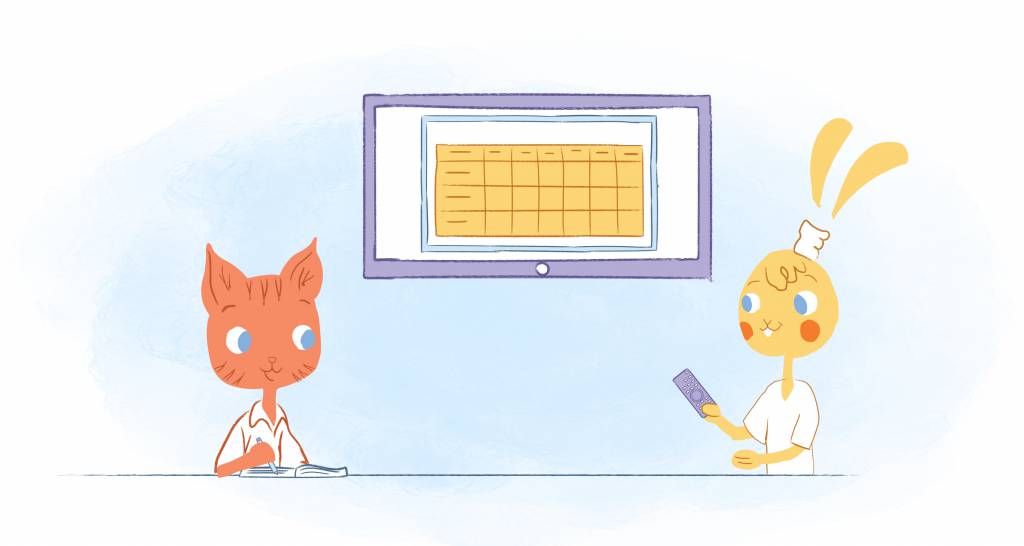

It’s no secret that outsourcing work to contractors can save your business a lot of time and money. But outsourcing relies on a dubious assumption: that your contractors are as productive as your full-time team.
Like all employees and employers, freelancers sometimes need the motivation to stay productive and on task. But it can be a little tricky to motivate contractors — given the fact that you have less control over them as you do your employees. Contractors don’t receive benefits from you, and freelancers have the luxury of simply saying “no” to clients.
The Art of Motivation
With that said, there are strategies you can use to motivate contractors. With these methods, you can be confident that you’re setting up your contractors to do their best work.
1. Get onboarding right.
Contractors understand their own responsibilities — but don’t expect them to know your company’s systems and processes right out of the gate. They need to know what software tools you use as well as your company’s communication preferences. And things that seem obvious to you may be extremely confusing to a freshly hired freelancer.
Just as you would onboard your full-time employees, create a similar process for your freelancers that is suited to the kind of work they will be doing. Onboarding allows freelancers to learn the basics of your company and its culture. It provides them with a better idea of the larger organization that they are contributing to.
2. Be available to help.
No matter how good your onboarding process is — there will be unanswered questions.
It’s discouraging when there’s nobody available to help, or even to ask simple questions — (where’s the bathroom)?
Freelancers need a person they can go to when they’re confused, burning out, or have a brilliant idea to share. Be clear about when and on which channels they should reach out.
Sometimes contractors are afraid or embarrassed to ask questions. Motivate them by offering a confidential way for them to ask questions and connect them to someone with whom they feel comfortable. Even if they don’t take advantage of it, your freelancers will work with confidence, knowing that you have their back.
3. Provide detailed directions and feedback.
If you don’t give clear direction and feedback, your contractors will waste time trying to figure out what you want. Both of you will wind up frustrated and in an endless cycle of revisions.
If you put together detailed deliverables that communicate the outcomes you expect, you’ll receive what you ask for more often than not. Having a written process that your freelancer can refer to will prevent extra rounds of revisions for writers. Your freelancers won’t have to waste time playing the guessing game.
After they have accomplished their tasks, give them constructive feedback on ways they can improve. Providing valuable feedback prevents contractors from repeating the same mistakes and forming habits that are difficult to break.
4. Encourage ownership.
Freelancers can quickly feel like outsiders, especially if they’re temporary, and they work remotely. Feeling like an outsider especially happens when a contractor is micromanaged or left out during meetings. As you might imagine, contractors won’t be as productive under these circumstances.
You can minimize these issues by encouraging ownership. Giving ownership means giving them options in their work with your company. Emphasize the freedoms that they already have, such as the ability to work flexible hours.
When possible, cater to a freelancer or contractor’s workflow preferences. Contractors usually have their own systems in place. If you make them adopt your processes, you’re forcing them to unlearn and relearn how to do something.
Of course, there are other ways you can promote ownership. You can ask for their opinions on the best way to complete the project or praise them whenever they take a leading role.
Responsibility breeds commitment. If your freelancers or contractors have a stake in their assignments — they’ll work to the best of their abilities.
5. Reward good work.
Like all humans, contractors love to feel appreciated. Rewarding good work reinforces productivity and builds a positive client-contractor relationship. In turn, those freelancers are eager to work on the next project.
There are a lot of ways to reward workers, many of which go beyond increasing their pay. Figure out their pain points and think through your budget. Here are some ideas to chew on.
- Offer to give them a testimonial.
- Praise their work.
- Say “thank you” with a gift pack or gym pass.
Remember, working with contractors is a two-way street. Freelancers have to do their part in motivating themselves, but it’s up to you to create a work culture that encourages productivity on your freelance team.
The simple truth is that you can’t motivate freelancers unless you set them up for success. But here’s the good news: Everyone wants to succeed, and contractors wins are your wins.











John Hall
John Hall is the co-founder of Calendar a scheduling and time management app. He’s also a keynote speaker that you can book at http://www.johnhallspeaking.com.